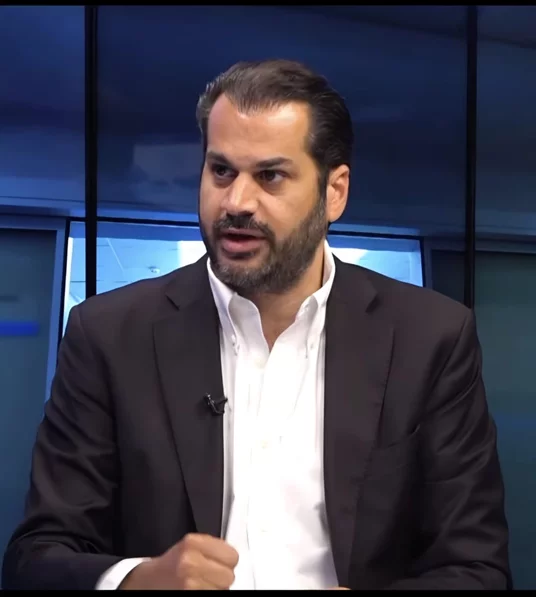JACQUES MAROUN TURNED FROM THE PATH OF A WALL STREET WOLF TO ACTOR AND DIRECTOR, MAKING A NAME FOR HIMSELF IN NEW YORK. SINCE FOUNDING THE ACTORS WORKSHOP - BEIRUT, MAROUN'S MISSION HAS BEEN TO REVITALIZE THE THEATRE CULTURE IN HIS NATIVE LAND. BOLD SAT DOWN WITH MAROUN TO TALK ABOUT HIS TRAJECTORY AND THE CHALLENGES OF PUTTING ON A PLAY IN BEIRUT
By Charlie Holdaway
When I go to a show I go with high expectations. I want to escape. I'm not going to be thinking 'Oh but, they have problems outside their control, they probably didn't have enough funding to fix this or that.' I'm not going to be thinking that, so why should anyone be coming to see us? Our problems don't concern them, and understandably so. We just have to be great regardless."
I'm talking to actor and director Jacques Maroun in the cozily elegant surroundings of the Theatre Monnot about the difficulties faced by the Lebanese theatre industry. Behind us, the stage is ready to be set for tonight's production of his latest show, Maroun's star-studded adaptation of Theresa Rebeck's Spike Heels. But, the pre-show calm of the theatre belies the monumental effort that launching such a production in a city like Beirut takes. Such efforts are only undertaken by those with the zeal of the truly passionate -- luckily for Beirut, in Maroun they have just such a zealot.
It was 19 years ago that Maroun, like so many of Lebanon's young people before him, packed up and trod the well worn path over to the US. In his case, he was Texas-bound, to study performing arts and management. But, in the immediate aftermath of graduation, it was the management side of his degree that won out.
"As soon as I graduated I moved to New York, and my first job was on Wall Street in a small brokerage firm. Kind of like The Wolf of Wall Street, but I never made it to wolf, maybe because it just didn't feel right -- I only took the job because I couldn't afford not to. I ended up staying with them for eight months," he said.
"Then, right after the initiation period, I decided to go to grad school and continue my studies as an actor and director. My senior broker said 'You got accepted to the Actor's Studio so you're leaving? Are you crazy? If you stick with us you could buy the studio in a couple of years.' It turned out the firm was a little shady I guess, because the SEC shut them down six months after I left."
It was 1999 when Maroun got to New York and, after studying at the hugely respected Actor's Studio, he began the difficult task of carving a name out for himself in the city's competitive theatre world.
"I had a small workshop in New York, and worked a lot in the production side too. I always tried to stay involved in the industry even if I wasn't doing exactly what I wanted do be doing at first, but I can't even start to list all the jobs I had!" he said. "But I had an agent and was auditioning a lot -- as an actor on stage and I had a few small parts in small films and big films. Then, in 2004, I directed a small play called Too Much Light Makes the Baby Go Blind and I followed it with Sexual Perversity in Chicago."
More directing credits came, so far so good. But in 2009, after 11 years in the city, personal issues in Lebanon meant that he abruptly had to move back. Although Maroun is philosophical about it, it must been bruising to give up his home of more than a decade, not least because of the work he had put into his field. As he puts it: "Before I came back, well, I like the analogy of an aeroplane -- I wasn't cruising yet, but I'd taken off."
The Lebanese theatre industry he came back to was, to put it lightly, not in the same league as the one he had left in New York.
"The industry I was involved in there was almost non-existent here. We have three or four theatres here in Beirut and they're quite small," Maroun said. "So, I had to do a lot of, not soul searching, but I had to make a decision as to where I wanted to go."
After a year or so spent working in teaching and production, Maroun had his answer, and he embarked on trying to recreate some of what he had left behind in New York. The first step, taken in 2011, was to start the Actors Workshop - Beirut by persuading some friends already working in the industry to come in and start work on some new projects with him.
After four months Maroun felt they already had enough to justify putting on a showcase of their work. After this, calls started coming in from people in the production industry, asking members of the workshop in for auditions. People were paying attention.
"It was very gratifying, not because I felt that I was recreating what I had lived the previous years, but that I was doing something new and it was fruitful," he said. "But I knew it was going to be hard to just keep doing that. So I needed it to grow."
That growth was to be accomplished by starting a production arm of the Actors Workshop to stage professional productions. And it's fair to say that Maroun set the bar pretty high with its first offering. Reasons To Be Pretty, written by Neil LaBute and starring Nadine Labaki, Talal el Jurdi, Nada Abou Farhat and Elie Mitri, was seem by more than 10,000 people during 53 performances over three months.
"From what I hear and what I've seen in Beirut, it's very rare to have a play last more than a month," he said. "Not because it isn't good, but because it can't -- you don't have a theatre-going community."
And, while Maroun's success implies there is a resurgence in the theatre world here, there is still along way to go. Maroun's current play, the Spiked Heels adaptation Ka3eb 3aleh, also has an impressive cast -- Talal el Jurdi, Ammar Shalak, Rita Hayek and Nisrine Abi Samra -- has been well received and has had a lengthy run (at the time of our meeting it was in its second month). But, despite outward success, it is still a struggle to mount such productions. It's not helped by the fact that Lebanon, a country where spending lots of money on going out is far from abnormal, is just not used to the idea of spending it on theatre.
"There are stars in this play yet the front row seat is $30, the tickets are between 20 and 30 bucks," he said. "If it was a show with students you would charge roughly the same, but the actor's pay scale is very different, of course. So, how do you then pay for designers and theatre rental and crew? If you were to charge more, because people are not accustomed to the culture of theatre here, they would say 'that's very expensive, who do they think they are?' So you've got to give it some time. But, the passion for the work we do gives us the patience to keep hammering away."
Maroun's solution is to keep putting on the highest quality productions he can, and build year on year, although he does admit that this year has been harder than projected due to the country's political and financial strife. But, he is already working on the company's next production and, given how much he has achieved in such a short space of time, with him helping direct it, one can't help but feel that the curtain's is only just rising on Lebanon's theatre industry.
Since the interview was conducted, Ka3eb 3aleh has extended its run. The show will be at the Babel Theatre in Hamra for one month starting from Feb 6.
Source : Bold-mag.com



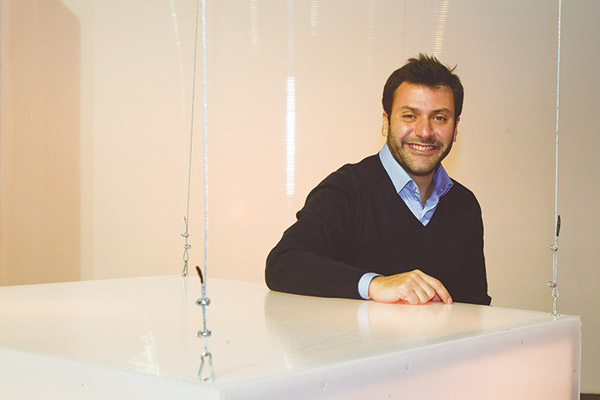

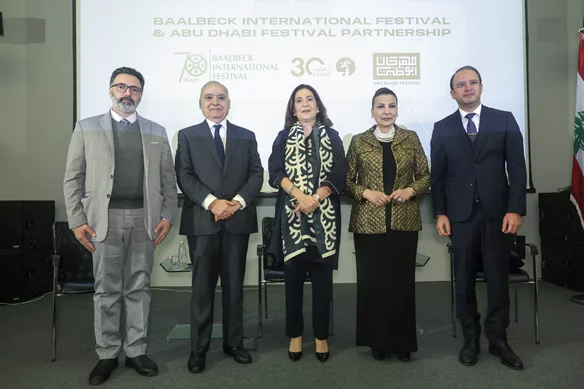


.webp)

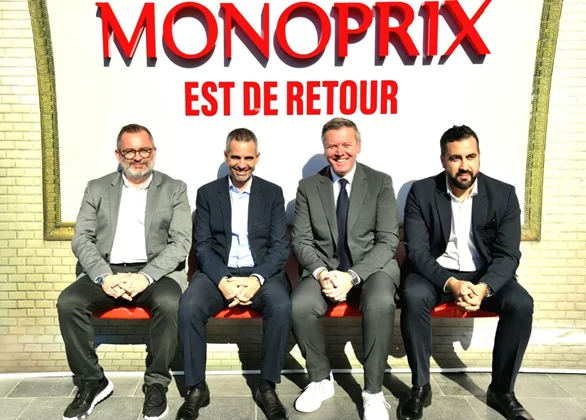
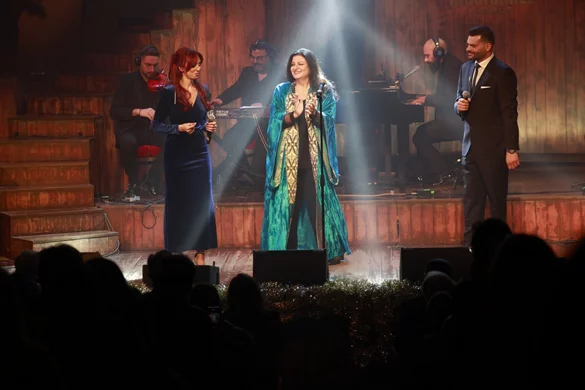






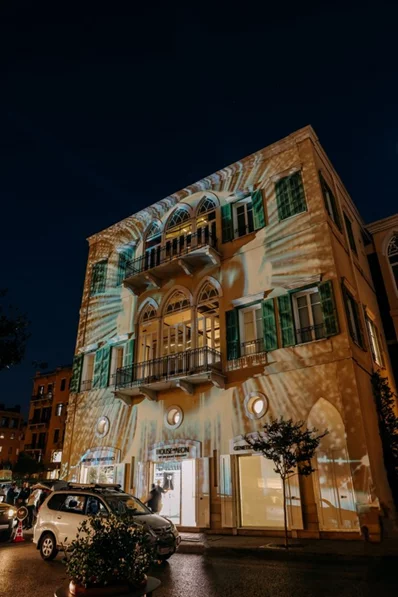
.webp)
